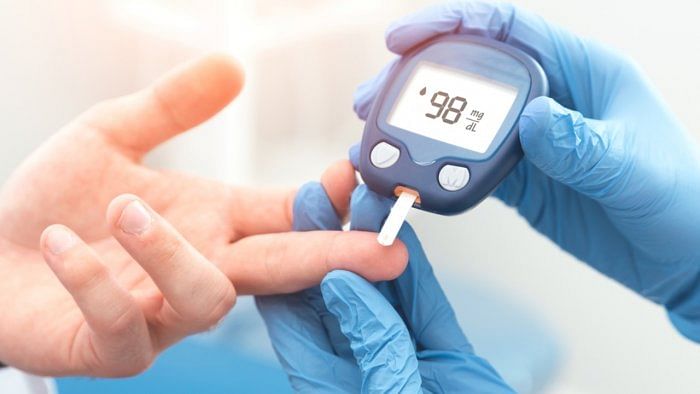
Hypertension, or increased blood pressure, is common among patients with diabetes. It may occur in diabetics because of the impact of diabetes on the walls of the arteries and the fluid balance. Hypertension may however co-exist as an independent risk factor along with Diabetes Mellitus.
In either case, it can significantly increase the chances of developing heart conditions or conditions like stroke as well as the risk of developing other complications like renal or eye related conditions like nephropathy, retinopathy, etc.
Consensus guidelines from the Joint National Committee on the Prevention, Detection, Evaluation, and Treatment of High Blood Pressure, the American Diabetes Association (ADA) and the National Kidney Foundation (NKF) recommend a blood pressure goal of less than 130/80 mm Hg in patients with diabetes.
A recent survey conducted by Indus Health Plus found that 26% of the people tested had high blood pressure out of which 13% had systolic blood pressure above 140 mm Hg. The sample size of the survey was 21,000. Controlling hypertension is the key to reducing cardiovascular risk in patients with diabetes. It is an integral component of a comprehensive care plan that should include optimal management of diabetes and hyperlipidaemia, aspirin therapy, and lifestyle modifications.
Hypertension is a major risk factor for cardiovascular disease, and its prevalence is increased in diabetes mellitus, as multiple researches show. Therefore, the detection and management of elevated blood pressure (BP) is a critical component of the comprehensive clinical management of diabetics.
Diabetes-BP Link
How can diabetes cause hypertension? In diabetes, the body does not produce enough insulin so it does not work effectively, or
they cannot process glucose. Insulin is a hormone that aids the body in converting glucose from food into energy. When a person has insulin issues, glucose cannot enter their cells to provide energy, so it accumulates in the bloodstream instead.
In addition to causing
widespread damage to tissues and organs, high blood glucose can also interfere with the control of blood pressure. Damage to the blood vessels and kidneys can increase blood pressure, for instance.
Preventive Care
How can one prevent or control both diabetes and hypertension effectively? One important, and practical, way is to modify lifestyle, which includes following an appropriate diet, engaging in 30 to 45 minutes of moderate-intensity activity most days of the week, avoiding smoking and alcohol.
Appropriate medical treatment needs to be followed with good compliance for controlling the two conditions effectively. Here are some preventive measures that people can take to control these conditions in an effective manner”
Regular preventive healthcare check-ups or screening to monitor the levels
People with excess weight can reduce their high blood pressure and diabetes risks by
losing just a little weight.
Regular physical activity lowers blood pressure and helps manage blood glucose levels, among other health benefits.
Dietary Approaches to Stop Hypertension (DASH) is often recommended by doctors to lower blood pressure and improve overall health. This typically includes: Consuming plenty of fresh fruits and vegetables; avoiding added salt or sugar altogether; Limiting or avoiding unhealthy fats, such as trans fats and animal fats; stop smoking.
New and emerging tools like genetic testing can help in understanding genetic risks or predisposition to these conditions in an individual and hence, helping them take appropriate preventive and precautionary measures and make lifestyle modifications.
Diabetes and hypertension often occur together and have multiple risk factors and causes in common. The risk of developing one condition increases when a person has another.
Hypertension and diabetes are two of the leading risk factors for atherosclerosis and its complications, including heart attacks and strokes.
The early detection and treatment of hypertension and diabetes can prevent serious
complications to health.
A healthy lifestyle and simple changes to daily routine helps manage blood pressure and blood glucose levels.
(The writer is a Preventive Healthcare Specialist)